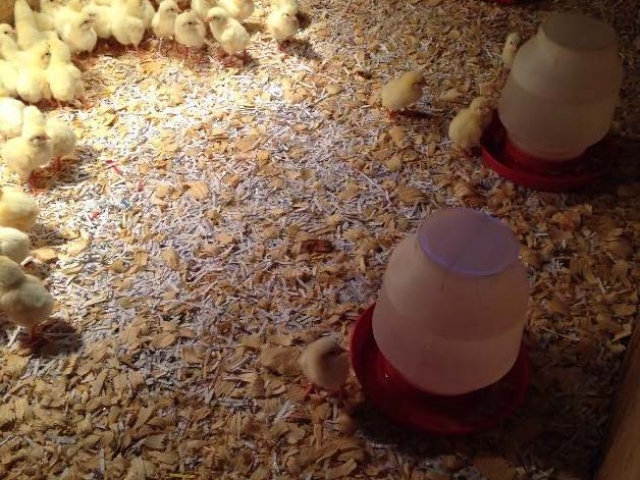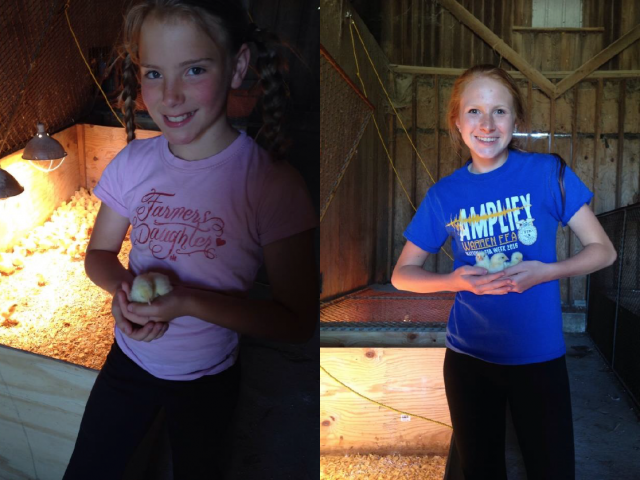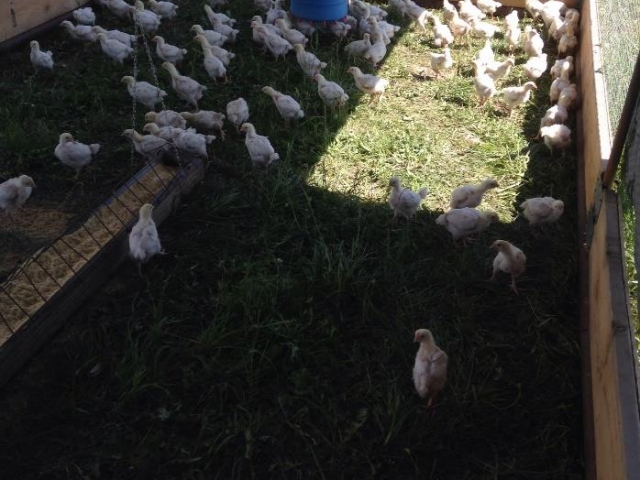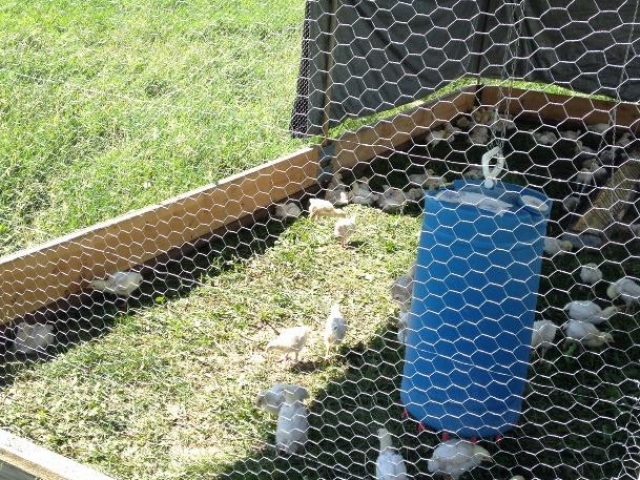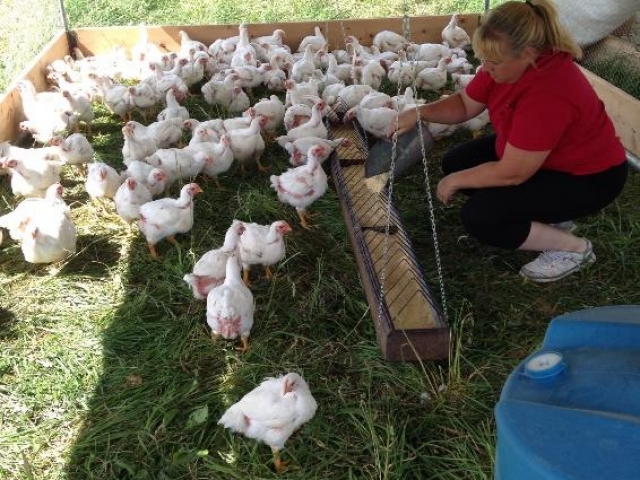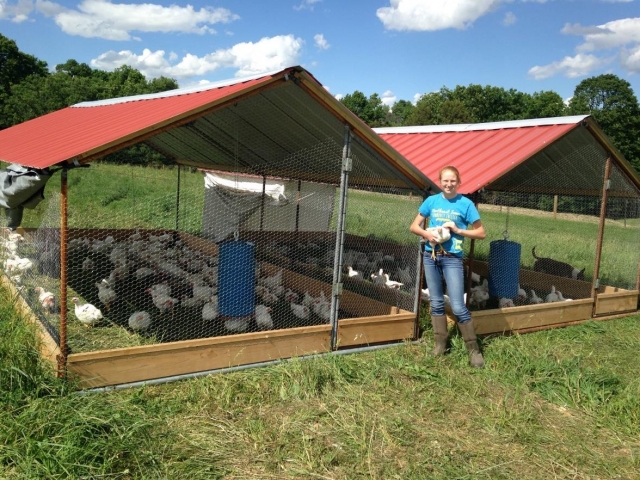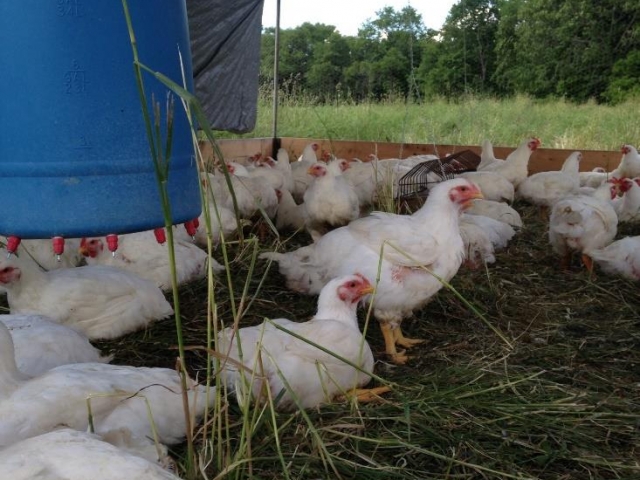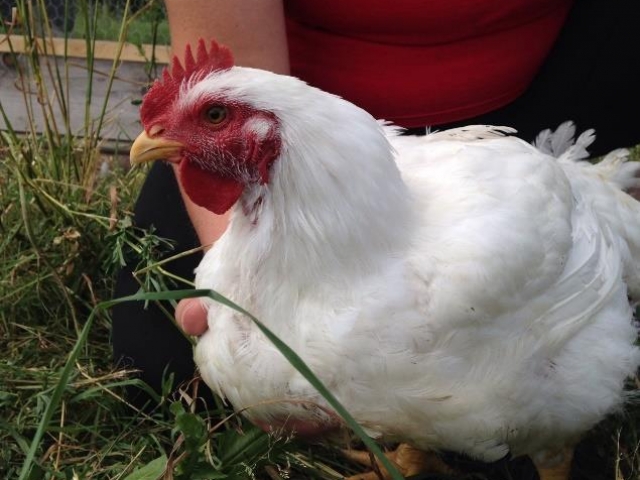Pasture PoultryFind your nearest store
Does raising poultry on pasture land make a difference?
The quick answer is yes,… pastured chickens reach full maturity naturally from hatchling to harvest.
Molitor Farms Cornish/Rock Cross chickens are allowed continual access to sunshine, clean water, and fresh grass. Their feed is supplemented by corn that has not been genetically altered, plus small grains such as oats, wheat, and soy. They’re also protected day and night from predators such as hawks, foxes, and raccoons. We don’t raise chickens during the cold winter months.
When poultry is raised on pasture land, nutrients are returned to the soil through natural fertilization. Polluting chemicals are eliminated. Their entire life cycle is free of antibiotics, harmful growth hormones, or drugs of any kind, which means we’re receiving better health benefits from a better environment.
What are the benefits for my family?
Nutritional studies on pasture poultry have shown significantly higher omega 6 and omega 3 fatty acids, together with better levels of vitamins A, D3, E and beta-carotene versus poultry produced at industrial confined animal feeding operations.
The visible differences are amazing – tender and juicy with a flavor that can’t be achieved from chickens that are confined. Healthy, plump, pastured chickens mean better health for you and your family. Let’s start up the grill tonight!
What’s the difference between “free range” and pastured chickens?
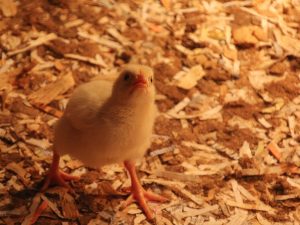 There is a difference. Free range should mean that chickens are allowed to “range” freely outdoors where they can forage for whatever insects, wild seeds, and worms they may find. Sounds really idyllic doesn’t it?
There is a difference. Free range should mean that chickens are allowed to “range” freely outdoors where they can forage for whatever insects, wild seeds, and worms they may find. Sounds really idyllic doesn’t it?
The USDA definition of “free range,” however, is hazy at best. In order to qualify for free range labeling, all a producer has to do is show that the chickens have “access” to outside. This could mean a 100-foot shed with hundreds of chickens running around on a litter covered floor with a pop-open chicken door on one end leading to an open space with bare dirt and no vegetation.
It’s equally hazy with packaged chicken labeled “certified organic.” The National Organic Program doesn’t list “free range” as a defined term — only that chickens must have “access” to outdoors. Sadly, this has led many producers to cut corners in how they raise chickens.
Growing to know us
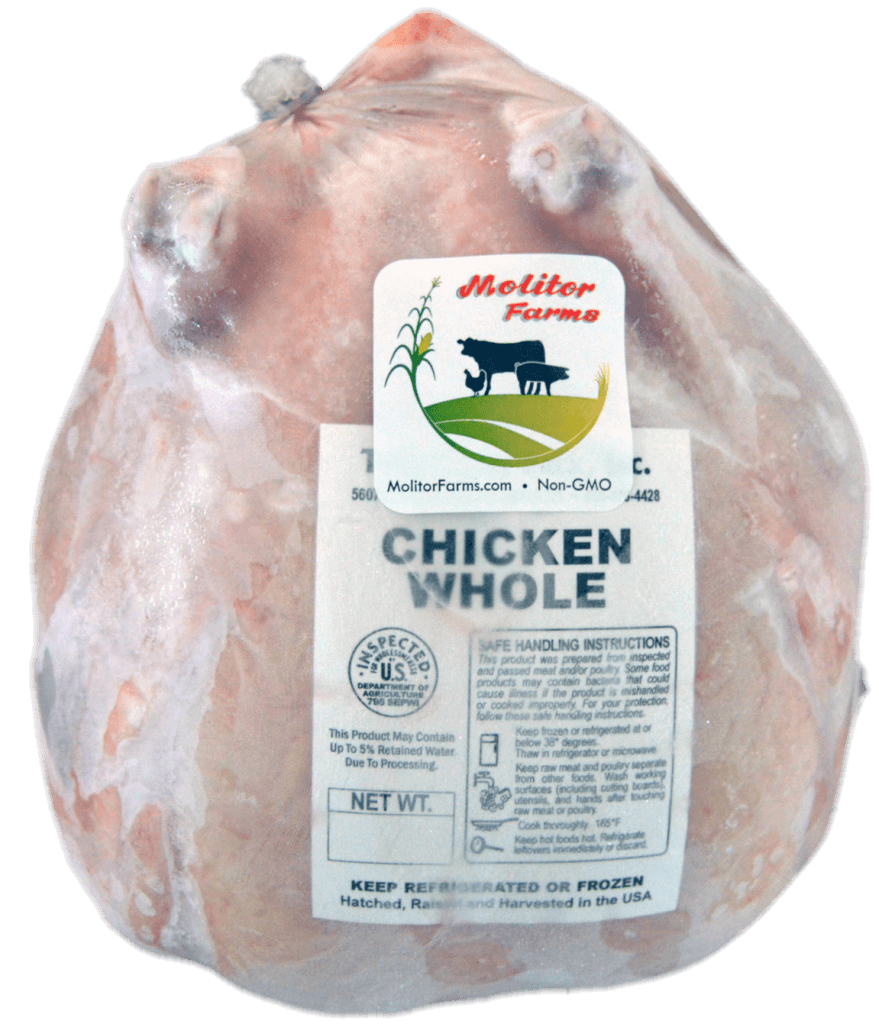 The most sensible answer to these questions is growing to know more about the farm on which your chickens are raised and their attention to detail. Molitor Farms holds to a description of pasture poultry simply defined as:
The most sensible answer to these questions is growing to know more about the farm on which your chickens are raised and their attention to detail. Molitor Farms holds to a description of pasture poultry simply defined as:
Birds that are kept outside as the season and daylight hours permit, using movable open pasture shelters that offer constant access to sunshine, water, and fresh-growing nutritious vegetation.
Pastured chickens may cost a bit more, but take a trip to a confined poultry operation one day to learn how they raise chickens in order to sell “cheap” meat products. You’ll have no doubt that the slight difference in price is well worth it for your family.
Molitor Farms is a family run business. We believe there’s a far better way to bring wholesome food to your table. It begins at ground level on our farm with biologically rich soil that contains many living organisms needed to produce nutritious grass pastures for chickens to forage. Better soil, better health for your family.
Price List
| Whole | $3.00 / lb | |
| Cut – up | $3.50 / lb | |
| Pieces – Breast/Leg Quarters/Wings | $4.00 / lb |
Developed by Modern One Marketing

